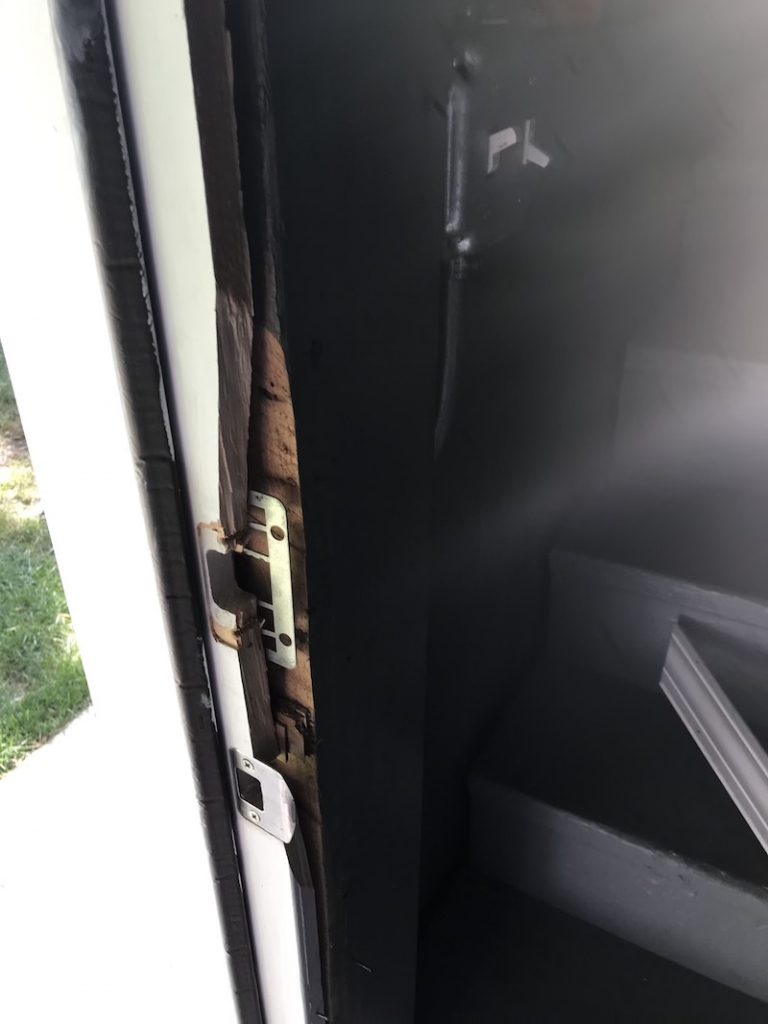
Pulling into my backyard last Tuesday, I saw him come out of my house. Tall and heavy, he and I made eye contact as he closed the door. He coolly walked to the gangway and headed up to the sidewalk up front. We have new tenants moving into our first floor apartment this week, so I figured he was helping them out.
My son and I walked from the car, and when I got to the back door, I saw it was bashed in, and realized: This man just broke into my house.
When crime happens to you, it feels intensely personal. And when you hear about crime happening in your neighborhood, the immediate impulse is to believe things are getting worse. I know that’s how I felt.
But the statistics actually bear out something much more complicated.
Reported burglaries per capita in the United States are down – way down – over the last 25 years. In fact, in 2017, the most recent year we have complete national statistics, burglaries were one-third of those in 1991. And rural states generally have many more burglaries per capita than urbanized ones. Of course, we’re talking about “reported” burglaries, since the federal Bureau of Justice Statistics warns that about two-thirds of burglaries likely go unreported, since victims believe police “would not or could not do anything to help” or that the crime is “a personal issue or too trivial to report.”
Since I live in Chicago, which reports detailed statistics, we can drill down even further. The week before I saw my thief, 34 burglaries were reported in District 19, where I live on Chicago’s North Side. That’s down 44% from the same week last year, when 61 burglaries were reported. There were zero murders and two shooting incidents in District 19 that week.
Compare that to District 6, in one of the most dangerous parts of Chicago, where there were 63 burglaries, four murders and 17 shooting incidents last week. Considering the high murder rate, District 6 is probably one of those places where burglaries often go unreported.
For me, I realized that this is the sixth time I’ve been burglarized – the first for this house and the third time in Chicago. I never thought that was a big deal, until I mentioned it to the Chicago detective working my case. “That’s really unusual,” she told me.
Do I have some kind of weird burglary karma? It’s not like I live with all my windows and doors thrown open all the time. In fact, some of the thefts have been incredibly specific efforts, including the time someone broke into my house in Harrisburg to take my super nice SLR camera and nothing else. Or the time someone broke into my third floor apartment in Chicago, apparently using an old tenant’s key to take my laptop. Or the time someone cut off the lock of my storage container in Washington, D.C. to steal my computer. (And yes, I tend to have a preference for high-end computing equipment. Some people like cars, I like computers.)
After I saw the bashed in door last Tuesday, I ran to the front of the house to see if I could catch my burglar. But in the ninety seconds it took me to process what had happened, the guy managed to get far away. I called 911 and gave them a detailed description of the thief, and within a couple minutes, there were police at my door. Ten more minutes, and they had pulled up street camera pictures of the guy after he’d left my house. There was an eyewitness (me), a clear description, pictures of him walking around the neighborhood, and I later learned in a neighborhood Facebook group, pictures of him caught by an internal security camera after he’d broken into another person’s house.
Since then, detectives have visited me twice and I’ve gotten daily updates on the case. It seems that Chicago Police are intent on the case, watching Chicago Transit Authority cameras on busses and trains across the city.
The burglar didn’t get too much. A laptop that I quickly replaced and refurbished with a backup, and some jewelry with a bit of sentimental value. Insurance will replace most of it.
Maybe they’ll catch the guy this time. If they do, maybe it’s because police in my district have more time to spend on burglaries rather than murders and shootings. But maybe also, police respond differently. In 2014, the American Civil Liberties Union showed that police respond differently to crime in African-American and Latino neighborhoods than in white neighborhoods, where police in white neighborhoods responded nine minutes faster on average to 911 calls than in minority ones.
District 19, where I live, is one of the white ones. District 6, which had many more murders and shootings last week, is one of the African-American ones.
The police working my case were courteous, professional and kind. One detective, learning that my tenants were just moving in, took pains to tell them, “This is a great neighborhood. You’re going to love living here. This sort of thing doesn’t usually happen.”
I really appreciated that.
But looking at statistics for “the other side of town,” I’m not confident that my experience is universal. And the idea that many Chicagoans never get to feel like the police are looking out for them, worries me much more than the fact there was a burglar in my house last week.